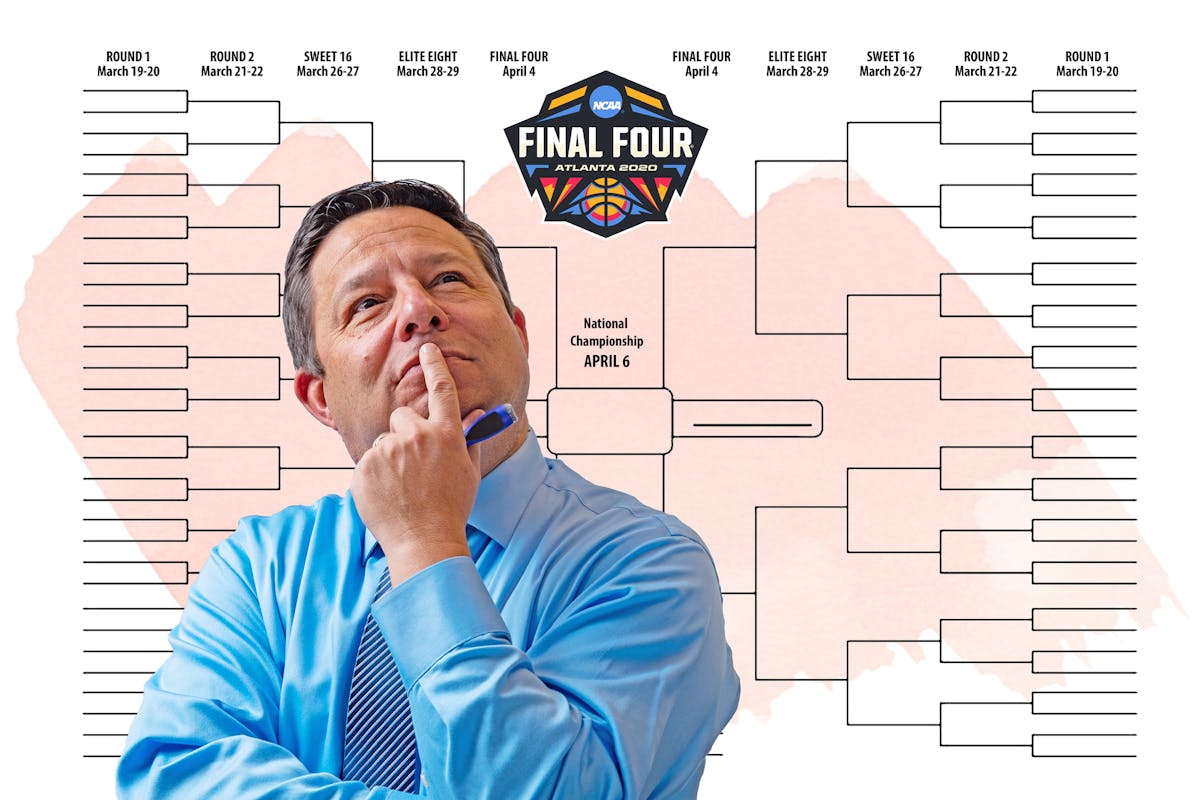 See
more of the story
See
more of the story
On Sunday, for perhaps the first time as a nation, we stared into the sporting void.
Previously, NHL and NBA games had been canceled, and golf tournaments, and the Minnesota Whitecaps' chance at another championship. Sunday, though, the pandemic forced the cancellation of perhaps the only sporting event that unifies Americans at a grass roots level.
When Selection Sunday became Silent Sunday, our brackets became as empty as the current sporting calendar.
The Super Bowl is reason to throw a party, but some care more about the bean dip than the game. The World Series has become a late-night marathon. The NHL and NBA playoffs are engineered slogs.
Of America's most popular professional sports, perhaps only the NFL enjoys crossover appeal with non-sports fans, which is proof of popularity driving popularity more than quality driving popularity. Remember, "Macarena" reached No. 1 on the Billboard chart; "Like a Rolling Stone" did not.
What is different about the NCAA tournament is that it is naturally and relentlessly inclusive. You can cheer for or against Duke, or you can choose the smallest school, or the school you didn't know existed. You can cheer for a state, a region, an underdog, a coach, or, best of all, a story.
Let me tell you a secret: The basketball during March Madness isn't necessarily all that good, at least on the men's side, and especially in the early rounds. That doesn't damage the tournament's popularity, because of the greatest invention in American sports since the forward pass:
The bracket.
The bracket is what makes March Madness a societal phenomenon. The bracket is the greatest driver of sports conversations in America. The bracket is what we will miss the most.
The preponderance of one-and-done or none-and-done players has robbed the men's college game of continuity, familiarity and quality. Imagine what the Gophers program would look like if Amir Coffey had stayed, and if Daniel Oturu would stay. Gophers basketball might, under those circumstances, be the most entertaining game in town. Instead, Richard Pitino finds himself trying to bolster his program with transfers.
The women produce more consistent quality because of the growth of their game and because their best player, Sabrina Ionescu, stayed at Oregon for four years, building her popularity as a college player and turning her school into a power.
On the men's side, the lack of quality control isn't a problem because randomness leads to upsets, and upsets are the driving force of the tournament's popularity in the early rounds.
We'll miss the bracket, and we'll miss the flurry of activity around the tournament, and we will miss the forced veneer of amateurism, because there is nothing else in the sports world quite like it.
No matter how bad the pandemic gets, we probably won't see the World Series or Super Bowl affected, and the Masters can be played in September. The NHL and NBA may be able to reschedule their playoffs, and the WNBA has time to adapt.
What we can't get back is Ionescu doing another star turn while playing in her final tournament for Oregon, or Cassius Winston trying to will Michigan State to a championship.
We missed rooms full of hopeful young athletes watching the selection show with the rest of us, and erupting with noise when getting the news.
College basketball is not the greatest sport in America, not any more, but it puts on the greatest show.
There are more important things in the world right now than seniors playing in the NCAA tournament, but we're still allowed to miss them. We're allowed to miss March Madness, and the brackets that bring us together.
Jim Souhan's podcast can be heard at TalkNorth.com. On Twitter: @SouhanStrib. • jsouhan@startribune.com
![Mary Rolfes of Elk River poses for a sad photo in front of the Michigan bracket at the Tip-Off Tailgate on Nicollet Mall. ] LEILA NAVIDI • leila.nav](https://arc.stimg.co/startribunemedia/PAX6TNPNK4SIHHFU5GGBMVEJB4.jpg?fit=crop&crop=faces&w=550&&auto=format)





